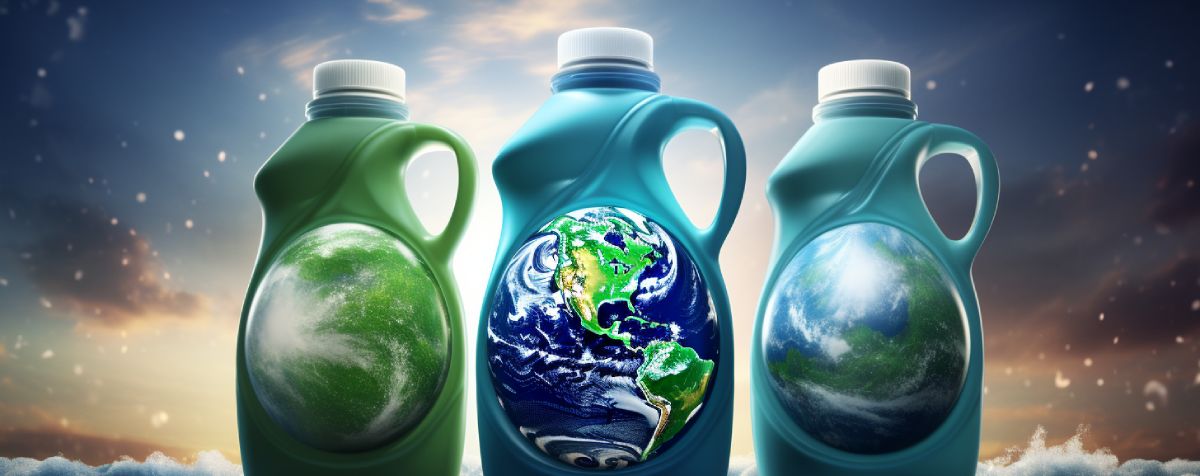
The Green Clean: Exploring Biodegradable Dishwasher Detergents
How Biodegradable Detergents Conserve Water
Sustainable products are vital nowadays. Water is conserved by using the best biodegradable dishwasher detergent. To understand how these detergents save our most precious resource, water, one must comprehend their nature and impact.
Detergents that degrade organically are eco-friendly. Biodegradable detergents eliminate phosphates, bleach, and other toxins by decomposing natural constituents. This distinction matters for assessing detergents’ water and environmental impacts.
Biodegradable detergents preserve water by reducing pollution. Washing traditional detergents into rivers, lakes, and oceans harms aquatic life. Blooms reduce water oxygen, harming fish and other aquatic life. Biodegradable detergents lessen this risk by nature.
Also, biodegradable detergents assist in preserving water pH. Traditional detergents include harsh chemicals that alter water pH, making many aquatic species unsuitable.
Biodegradable detergents treat wastewater, saving water. Organic wastewater treatment systems struggle with synthetic detergents. Some substances can reach natural water sources following treatment. Efficiency lowers untreated or partially treated water pollution.
Traditional detergent production requires a lot of water, contributing to water scarcity. Biodegradable detergents save water through eco-friendly production.
Beyond environmental benefits, biodegradable detergents encourage conscientious consumption. Eco-friendly household products are popular as people become more environmentally conscious. This consumer behavior modification is essential for water conservation. Customers indirectly save water and the environment by purchasing biodegradable detergents.
Fully sustainable detergents are still being developed. Some biodegradable detergents employ unsustainable ingredients or need a lot of energy. This field needs ongoing study and innovation to address these difficulties and lessen these products’ environmental impact.
Finally, biodegradable detergents save water in numerous ways. These detergents reduce pollution, regulate water pH, simplify wastewater treatment, and promote sustainable consumer behavior to conserve water. As technology and knowledge advance, these detergents may conserve more water.
Comparing Biodegradable Detergent Ingredients
Transforming from traditional to biodegradable detergents has transformed the consumer products industry. This component shift emphasizes environmental sustainability and accountability. Comparing biodegradable detergent chemicals to standard ones reveals the transition’s impact.
Natural components distinguish biodegradable detergents. These detergents differ from others since their ingredients are carefully selected to break down into harmless environmental elements. Common constituents include plant-based surfactants, enzymes, and natural scents. Cleaning requires plant-based surfactants like coconut or maize. Cleaning requires coconut or maize-based surfactants. Filth and grease are removed well and decompose without polluting water.
Enzymes are essential to biodegradable detergents: proteases, amylases, and lipases target protein, starches, and fat stains. Their specialty allows them to clean at lower temperatures and with less water, saving resources. Biodegradable and organically derived enzymes differ from detergent chemicals.
Biodegradable detergents’ natural scents matter. Essential oil and plant extract scents are pleasant without synthetic perfumes, which contaminate water and endanger aquatic life. Natural smells benefit the environment.
Chemicals in traditional detergents raise worries about phosphates. Phosphates soften and clean water, but they can eutrophicate ecosystems and destroy aquatic life. Biodegradable detergents avoid this using phosphate-free formulas.
Bleach and optical brighteners differ. These components make traditional detergents “whiter-than-white.” However, these compounds may harm persons and the environment. Biodegradable detergents employ natural colorants and no bleaching chemicals for environmental safety.
Pay attention to biodegradable detergent preservatives. Although biodegradable detergents use natural or light preservatives, they need them. Essential synthetic preservatives in traditional detergents may damage the environment.
Another distinction between biodegradable and regular detergents is packaging. The packaging of biodegradable detergent makers shows their environmental attitude. Packaging is often recycled or recyclable, reducing these products’ environmental impact.
Note that biodegradable detergent formulation fluctuates. This field’s research and development lead to innovations. Plant-based materials and more efficient production processes are being introduced to improve consumer health and the environment.
Understanding biodegradable detergent components’ small but significant environmental benefits is critical—ingredient sourcing matters. Plant-based components sourced ethically and sustainably reduce cultivation’s ecological impact. This technique promotes organic farming, which avoids synthetic pesticides and fertilizers that pollute water.
The water-solubility of biodegradable detergent components is also essential. Ingredients that dissolve quickly in water do not leave behind that harms aquatic life or pollutes water systems. This trait is crucial to marine ecosystem health and water safety for future usage.
Production energy footprint is considered when developing biodegradable detergents. Sustainability covers the entire manufacturing process, not just the result.
Another factor is biodegradable detergent compatibility with diverse water types. Detergents work less in hard water, which is high in calcium and magnesium. Biodegradable detergents work in different water conditions, decreasing the need for water softeners or more detergents and lowering environmental impact.
Biodegradable detergents demonstrate increased product formulation awareness of environmental health. From carefully selecting naturally derived chemicals to the ecological and ethical sourcing processes, these detergents aim to reduce environmental effects.
Biodegradable detergents show environmental responsibility. Over synthetic chemicals, natural, effective, and biodegradable ones demonstrate water and ecological issues. As awareness of the environmental effects of everyday goods develops, biodegradable detergents and properly selected components are vital. This transition is about a greener future, not just washing.






